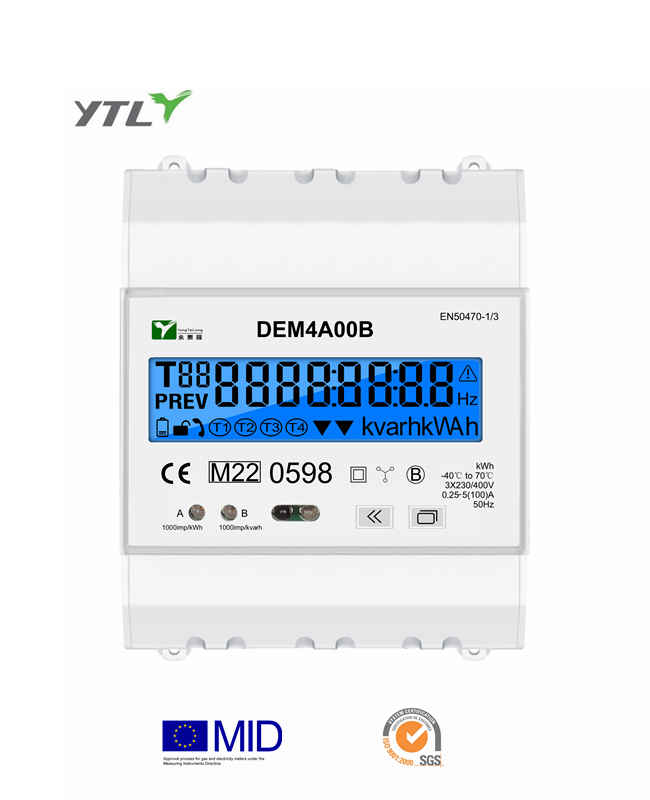YTL DEM4A 0.25-5(80)A DIN rail Three Phase Four Wires RS485 communication CE MID Certificate Watt Meter

The rail three-phase meter is fully functional and can meet the use of all kinds of application scenarios.The three-phase four-wire rail power meter complies with IEC62053-21-2020 and IEC62052-11-2020 standards.
Newly added, smart meters can better manage electricity usage information and improve the accuracy and timeliness of electricity metering for customers. Smart meters have two-way metering function and support distributed energy utilization. In addition to recording the amount of electricity entering the user, it is also possible to record the amount of electricity the user provides to the grid.
If users build wind, solar and other distributed clean energy power generation facilities, when the power generation cannot be used up by themselves, they can transmit excess power to the power grid, so as to achieve energy conservation and environmental protection, reduce carbon dioxide emissions, make users’ lives low-carbon, and improve users quality of life. economic benefits.
Smart meters have changed the problems of manual meter reading, difficult anti-tamper management, inaccurate measurement and low efficiency of traditional meters. By increasing grid reliability, reducing power losses, enhancing revenue management, improving customer service, reducing power tamper and greenhouse gas emissions, smart meters greatly facilitate our lives.

 English
English 简体中文
简体中文














